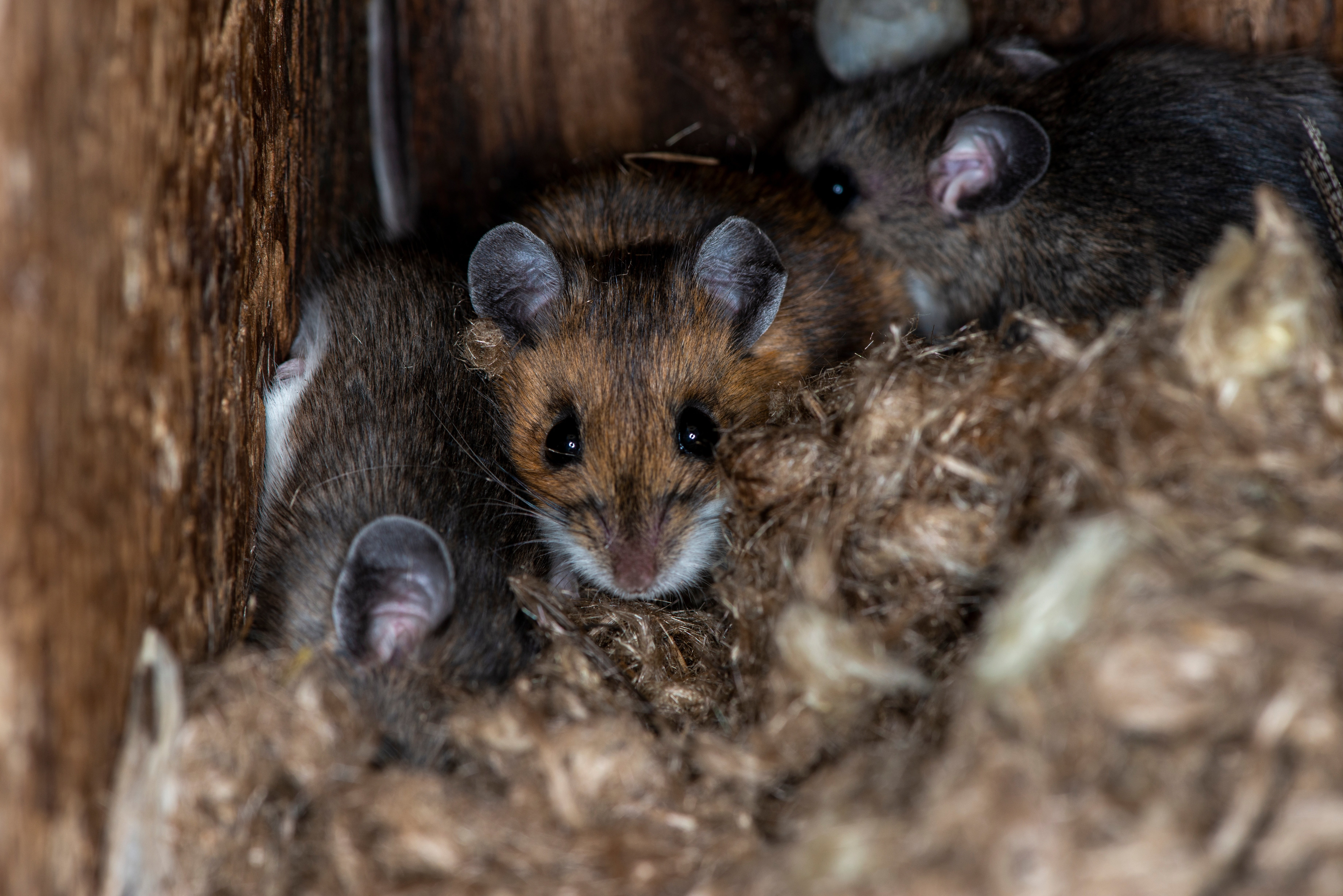The 2024 Mouse Population Boom: Why It Matters

This article originally appeared on the Viking Voice our LinkedIn Newsletter. Subscribe here.
While summer is always a busy pest season, one common pest has been more active than usual: mice. This summer the number of calls Viking Pest has received from customers with mouse control issues has been utterly unprecedented and, we suspect, it is only going to get worse. The Mid-Atlantic has seen two consecutive mild winters in 2023 and 2024 and, combined with a good acorn drop, mice have been active in unheard-of numbers.
Why does that matter?
Mice are one of the most misunderstood pests. They’re cute and seem harmless. While the former point is a matter of opinion, the latter is categorically untrue. If left untreated, mice can wreak havoc on both your budget and your health. If you run a business or are a site or building manager, this havoc can apply to your employees and customers who use your facilities. If you see signs of a mouse infestation, you can’t afford to wait on it. Because mice reproduce rapidly, a small infestation can become an overwhelming disaster in short order.
Here are the main problems mice can cause:
Structural Damage
Mice are rodents, which means their front teeth, which are called their incisors, never stop growing. To prevent their teeth from becoming too long, mice have developed a powerful gnawing instinct that drives them to damage a wide variety of materials from cardboard to wood to insulation to copper wire. The expense of fixing and replacing these materials can add up quickly, especially if the damaged wires cause fires.
Food Contamination
Mice don’t have table manners. They will gnaw through cardboard and plastic to get at your food and will leave a mess behind. They do not wash their paws or brush their teeth, so whatever Any microparticles, viral agents, bacteria, and allergens they’ve collected on their furry little bodies will end up contaminating your food. Further, mice have been known to defecate, urinate, and expectorate in food and in food storage areas. To protect your health, any food touched by a mouse will have to be thrown out.
Disease
Mice carry and spread a variety of diseases. Many of them can be quite serious. For example, it is estimated that five percent of house mice in the United States carry the virus that causes lymphocytic choriomeningitis, or LCM for short. This disease is transmitted through exposure to fresh urine, feces, saliva, or nesting materials. The most common symptoms last for about a week and include fever, fatigue, loss of appetite, headaches, muscle aches, nausea, and vomiting. In rarer cases, there are neurological symptoms which can include fever, headache, neck stiffness, lethargy, confusion, immobility, and weakened muscles. LCM infection can be passed on during pregnancy, and cause miscarriage during the first trimester and serious birth defects in the second and third. LCM is fatal to immunocompromised individuals in 70 percent of cases.
Other diseases carried by mice include:
· And more…
Anyone with a role in deciding what pest control measures your company takes has a responsibility to those who utilize your facilities. In addition to the risk of bad press and reviews, there could be legal and regulatory ramifications for failure to deal with mice infestations, even in non-medical or food service industries.
With the increase in mice populations over this past summer and the probable increase in mice activity in the fall, the need to act quickly to prevent potential infestations is more critical than ever. Viking Pest’s SMART Mice Control technology can help to detect infestations early and prevent them from becoming more serious and causing any of these problems. If you find mice cute, get a pet and keep it properly sheltered, watch a video on YouTube, or buy a stuffed animal. Don’t let an infestation impact your business, your employees, or your customers. It’s simply not worth the risk.
If you would like to protect your business from mice this Fall, call Viking Pest at (800)618-2847 or schedule a site evaluation today.











